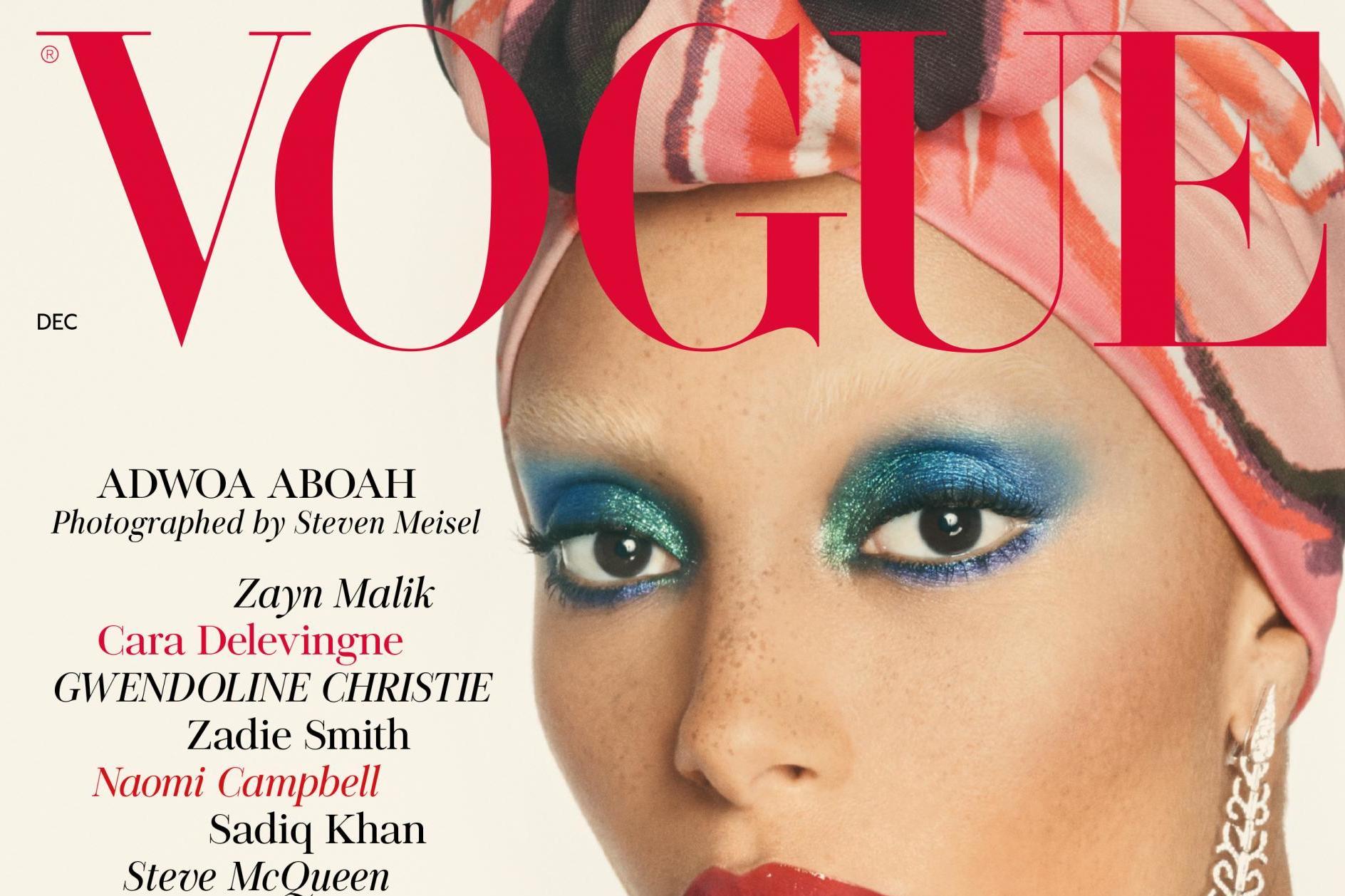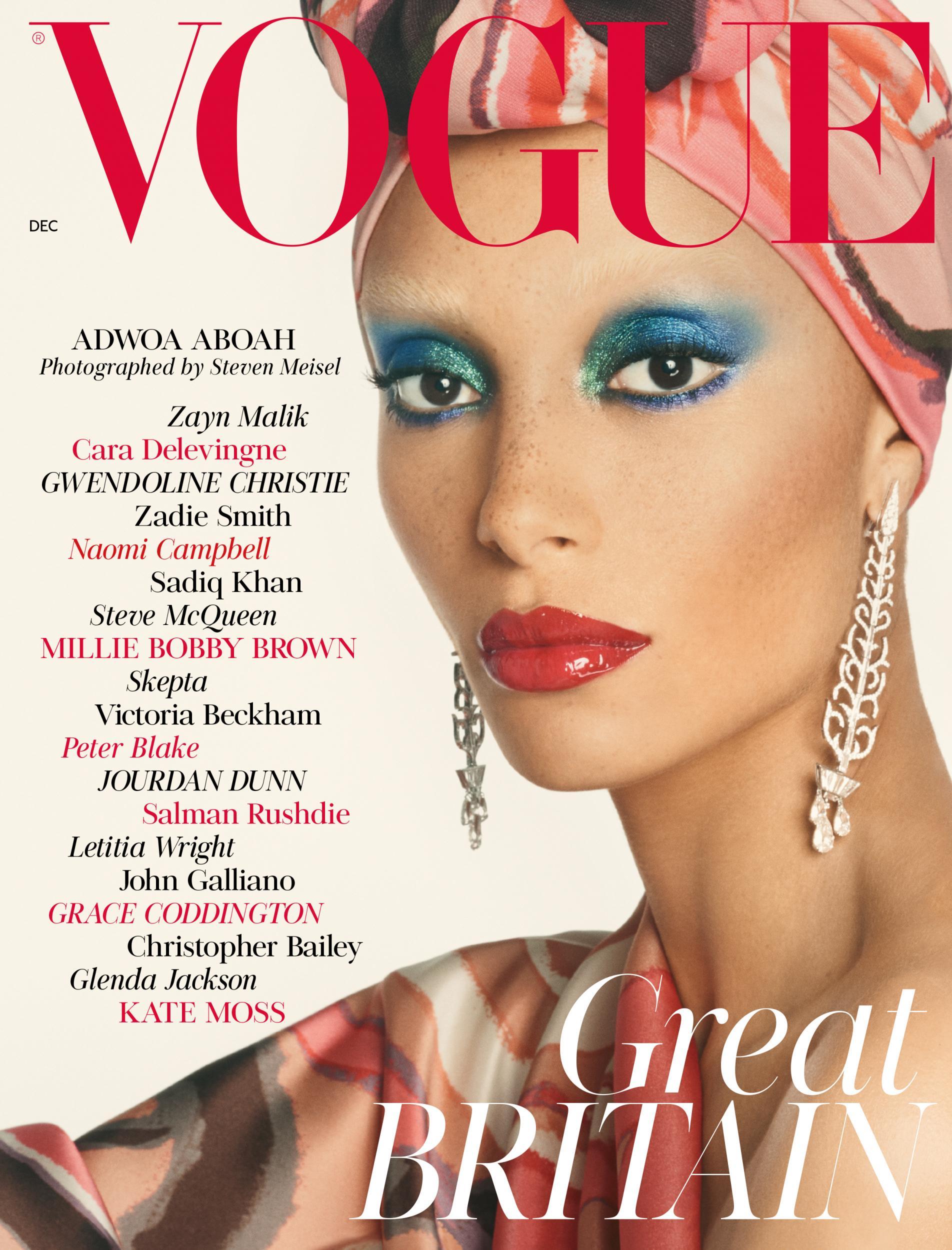The Independent's journalism is supported by our readers. When you purchase through links on our site, we may earn commission.
Alexandra Shulman’s Vogue might not have shown ‘ethnic diversity’ but Edward Enninful may make up for lost time
His first issue is already selling out on newsstands

Your support helps us to tell the story
From reproductive rights to climate change to Big Tech, The Independent is on the ground when the story is developing. Whether it's investigating the financials of Elon Musk's pro-Trump PAC or producing our latest documentary, 'The A Word', which shines a light on the American women fighting for reproductive rights, we know how important it is to parse out the facts from the messaging.
At such a critical moment in US history, we need reporters on the ground. Your donation allows us to keep sending journalists to speak to both sides of the story.
The Independent is trusted by Americans across the entire political spectrum. And unlike many other quality news outlets, we choose not to lock Americans out of our reporting and analysis with paywalls. We believe quality journalism should be available to everyone, paid for by those who can afford it.
Your support makes all the difference.Gasps, sighs and fervent accusations resounded throughout Twitter and beyond on Friday evening after former Vogue editor Alexandra Shulman made a series of awkward comments regarding race in an interview.
The esteemed editor, who famously only ever gave two black models solo covers during her 25-year-long tenure, told The Guardian she “would sell fewer copies” if she put a lesser-known black face on the cover.
Only Jourdan Dunn and Naomi Campbell made the cut.
On the other hand, Edward Enninful, whose debut issue hit newsstands last Friday, is already being hailed for putting a mixed race model on the cover and featuring a culturally-diverse mix of talents inside the issue itself.
Shulman’s comments sparked a furore online, with fellow journalists cringing at the 60-year-old’s evasive answers when probed on race, with some critics labelling the interview a “case study on white privilege.”
While Shulman explicitly states in the interview that she hasn’t “got a racist bone in [her] body,” critics took issue with her ambiguous choice of words when praising Enninful’s choice to put Adwoa Aboah on the cover.

“She’s the perfect mixture of mixed race, sort of posh Notting Hill royalty. So she’s the perfect cover star, absolutely,” she said.
The British editor came under fire earlier this year when Naomi Campbell posted a Vogue staff photograph to Instagram (which was printed in Shulman’s final issue) in which every face appeared to be white.
“Looking forward to an inclusive and diverse staff now that @edward_enninful is the editor,” wrote Campbell, who Enninful has appointed as contributing editor as the title.
When discussing the incriminating snap, Shulman explained that she’s “never been someone who’s box-ticked” and didn't take race, sex or age into account when considering applicants for jobs.
However, Enninful’s latest staff appointments and talent profiles feel less like box-ticking and more like a nod to leading lights whose credible reputations transcend the bounds of fashion.
Firstly, there's Aboah, who like Enninful has Ghanaian roots.
Then, there’s the notable names he’s brought to Vogue’s masthead (Naomi Campbell, Steve McQueen and Pat McGrath) and the talents whose voices form a core part of his debut issue (Skepta, Zadie Smith and Jourdan Dunn).
These are not people who Enninful has employed to simply meet a quota, they are names who are at the vanguard of fashion and culture and feel right at home in the pages of Vogue.
However, that’s not to say that Enninful's Vogue has arrived without controversy or criticism.
Aboah graces the cover appearing notably lighter-skinned than usual and without her trademark freckles, notes fashion blogger Sharn Rayment, writing for Shevolution.
“Is it just us or does she look extremely light and freckle-less in her cover shot?” before adding that the cover “feels almost washed out.”
In response to Shulman's Guardian interview, one tweeter accused the former editor of being “prone to nepotism hiring” with Shulman herself defending claims that she was running “a kind of posh cabal.”
Despite her denial, the magazine industry has always been notorious for operating on an “it’s not what you know, it’s who you know” mentality - and it might still, even under Enninful’s leadership.
Covergirl Aboah is not just an inspirational model-of-the-moment, she is also the daughter of high-flying talent manager Camilla Lowther, whose CLM agency represents some of the industry’s most prominent stylists and photographers (think Juergen Teller and Kate Phelan).
She also happens to be Enninful’s goddaughter.
So, yes, #NewVogue might be more diverse and "open," as Enninful calls it in his debut editor's letter.
But for an industry that seems so entrenched in exclusivity and the meritocracy of privilege (fashion internships are notoriously unpaid), will the glossy, marble gates ever really be completely "open" and without accusations of underrepresentation?
Watch this space.
Join our commenting forum
Join thought-provoking conversations, follow other Independent readers and see their replies
Comments